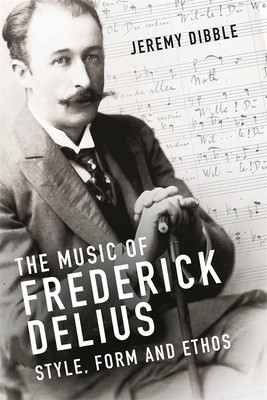
- We will send in 10–14 business days.
- Author: Jeremy Dibble
- Publisher: Boydell Press
- ISBN-10: 1783275774
- ISBN-13: 9781783275779
- Format: 16 x 23.9 x 3.8 cm, hardcover
- Language: English
- SAVE -10% with code: EXTRA
Reviews
Description
This book examines Delius's individual approaches to genre, form, harmony, orchestration and literary texts which gave the composer's musical style such a unique voice.
Frederick Delius' (1862-1934) music has proved impervious to analytical definition. Delius's approaches to genre, form, harmony, orchestration and literary texts are all highly individual, not to say eccentric in their deliberate aim to avoid conformity. Rarely does Delius follow a conventional line, and though one can readily point to important influences, the larger Gestalt of each work has a syntax and coherence for which conventional analytical methods are mostly inadequate. Delius's musical style has also defied one of the most essential critical tools of his musical epoque - that of national identity. His style bears no relation either to the Victorian or Edwardian aesthetic of British music spearheaded by Parry, Stanford and Elgar before the First World War, nor to the more overtly nationalist, folk-song-orientated pastoralism of post-war Britain in such composers as Vaughan Williams and Holst. In contrast, Delius acknowledged himself a 'stateless' individual and considered that his music refused to belong to any national school or movement.To test these claims, the book explores a number of important factors. Delius's musical education at the Leipzig Conservatorium and the works he produced there. Delius's musical voice, notably his harmonic and melodic style and the close structural relationship between these two factors. The book also explores the question of Delius and 'genre' in which the investigation of form is central, especially in opera, the symphonic poem, the choral work (where words are seminal to the creation of structural design) and the sonata and concerto (to which Delius brought his own individual solution). Other significant factors are Delius's cosmopolitan use of texts, operatic plots and picturesque impressions, his relationship to Nietzsche's writings and the genre of dance, and the role of his 'earlier' works (1888-1896) in which it is possible to plot a course of stylistic change with reference to the influences of Grieg, Sinding, Florent Schmitt, Wagner, Strauss and Debussy.
EXTRA 10 % discount with code: EXTRA
The promotion ends in 20d.16:22:43
The discount code is valid when purchasing from 10 €. Discounts do not stack.
- Author: Jeremy Dibble
- Publisher: Boydell Press
- ISBN-10: 1783275774
- ISBN-13: 9781783275779
- Format: 16 x 23.9 x 3.8 cm, hardcover
- Language: English English
This book examines Delius's individual approaches to genre, form, harmony, orchestration and literary texts which gave the composer's musical style such a unique voice.
Frederick Delius' (1862-1934) music has proved impervious to analytical definition. Delius's approaches to genre, form, harmony, orchestration and literary texts are all highly individual, not to say eccentric in their deliberate aim to avoid conformity. Rarely does Delius follow a conventional line, and though one can readily point to important influences, the larger Gestalt of each work has a syntax and coherence for which conventional analytical methods are mostly inadequate. Delius's musical style has also defied one of the most essential critical tools of his musical epoque - that of national identity. His style bears no relation either to the Victorian or Edwardian aesthetic of British music spearheaded by Parry, Stanford and Elgar before the First World War, nor to the more overtly nationalist, folk-song-orientated pastoralism of post-war Britain in such composers as Vaughan Williams and Holst. In contrast, Delius acknowledged himself a 'stateless' individual and considered that his music refused to belong to any national school or movement.To test these claims, the book explores a number of important factors. Delius's musical education at the Leipzig Conservatorium and the works he produced there. Delius's musical voice, notably his harmonic and melodic style and the close structural relationship between these two factors. The book also explores the question of Delius and 'genre' in which the investigation of form is central, especially in opera, the symphonic poem, the choral work (where words are seminal to the creation of structural design) and the sonata and concerto (to which Delius brought his own individual solution). Other significant factors are Delius's cosmopolitan use of texts, operatic plots and picturesque impressions, his relationship to Nietzsche's writings and the genre of dance, and the role of his 'earlier' works (1888-1896) in which it is possible to plot a course of stylistic change with reference to the influences of Grieg, Sinding, Florent Schmitt, Wagner, Strauss and Debussy.


Reviews